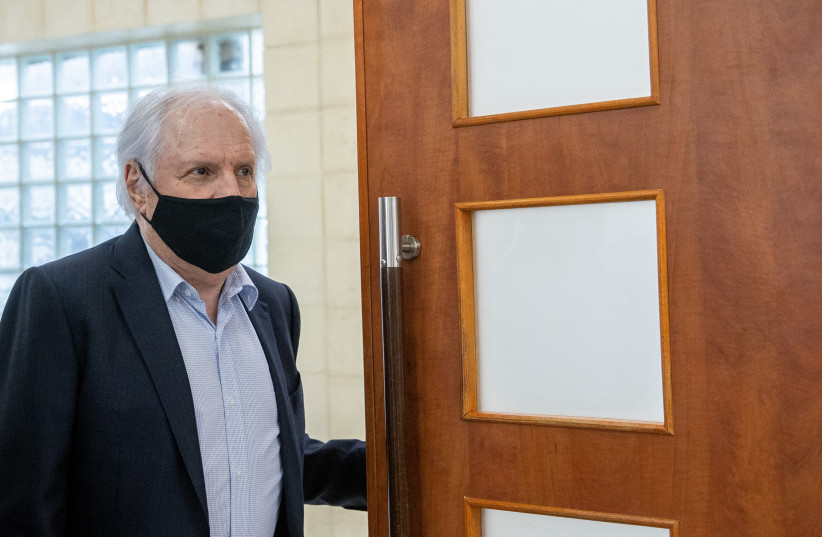The High Court of Justice accepted an appeal by the state to restore charges against Bezeq owner Shaul Elovitch and several Bezeq officers on Thursday morning after the Tel Aviv District Court ruled to drop two charges form an indictment for corporate fraud and breach of trust in the merger of Bezeq and Yes and a subsequent Yes-Spacecom deal.
Elovitch's lawyers said that they would respect the verdict, and are prepared for a hearing at the district court.
“We are prepared to conduct the trial and are confident that the correct and just legal result will be the complete acquittal of Mr. Elovitch from any guilt,” they said in a statement.
Two charges were restored for Elovitch and his Eurocom Group, who were still facing a third charge for the postponement and advancement of payment for Yes suppliers in order to influence Bezeq's purchase of Yes's holdings. Former Bezeq VP Amikam Shorer, former company secretary Linoy Yochelman, Elovitch's son Or, who were formerly acquitted of the indictment, had two charges restored as well.
The above and other Yes and Bezeq officers not part of the appeal had allegedly participated in a scheme to manipulate business transactions to Elovitch's benefit through the leak of information and documents from an antitrust auditing committee overseeing negotiations. Elovitch gained NIS 968 million from the deals between the companies.

Connection to Case 4000
Through Eurocom Group, Elovitch owned Bezeq and had a controlling interest in Yes. He was also a director of Spacecom at the time. According to Israeli law when there are transactions between public companies in which the controlling power has personal interest approval is required by a shareholders meeting, the board of directors, and an antitrust auditing committee.
Elovitch was alleged by prosecutors to have been receiving regular information and documents from the special committees, which through the other defendants allowed him to manipulate negotiations. A consulting agency initially advised shareholders not to approve of the deals due to the pricing of the sales and conditions.
Prosecutors said that the leak of confidential materials created a competitive advantage in negotiation, and created a false representation for shareholders that negotiations were being conducted properly. This was a breach of trust for the officers who were fulfilling their duties at Bezeq; The deal had negatively impacted Bezeq but benefited Elovitch. The indictment claimed that the respondents had attempted to hide their actions.
Elovitch and fellow suspects argued to the Tel Aviv District Court that there was no criminal prohibition of the interested party in the transaction process, and that there was nothing wrong criminally or civilly for receiving information on those discussions. It was argued that the indictment did not specify the injury caused to Bezeq by the defendants.
The Tel Aviv District Court had dropped the charges in July 2022 because it felt that the prosecution couldn't point to any legislation or regulations that the information leaked had to be confidential. Those charged hadn't received anything fraudulently, said the court.
The High Court disagreed with the assessment, arguing that confidentiality was key to the idea of the audit committees, which were designed to neutralize conflict of interest for the benefit of society and the shareholders. Based on the indictment, the leaked materials seemed to be clearly for committee members only.
The case is closely connected to the Case 4000 corruption trial of Prime Minister Benjamin Netanyahu. Former Communications Ministry director turned state witness Shlomo Filber told police that under instruction from the prime minister he had illegally leaked ministry communications to Bezeq officials. The reportedly officials sent back notes and instructions for changes needed to benefit Elovitch.
Filber told police that this was part of a scheme to help Elovitch make money in return for positive coverage on his website Walla.
